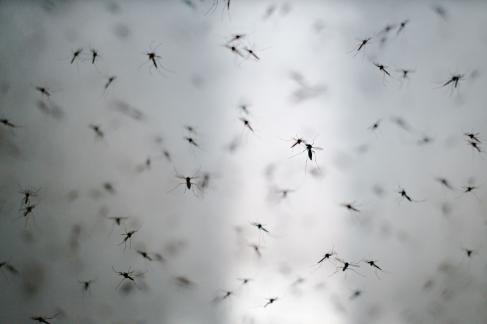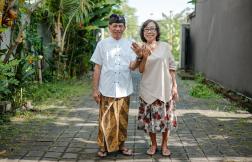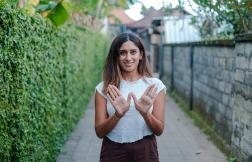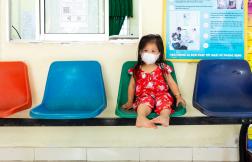The World Mosquito Program in Indonesia is part of a global, not-for-profit initiative that’s working to protect local communities from mosquito-borne diseases.
Dengue was first reported in two of Indonesia’s 29 provinces in 1968. Today dengue has spread to all provinces and is endemic in many large cities and small towns. We have been working in Indonesia since 2012, protecting nearly two million people from dengue and other mosquito-borne diseases.
(Data updated June 2023)
Pelajari selengkapnya mengenai program kami di Bali di sini


In Yogyakarta and across neighbouring Sleman and Bantul districts, the project was funded by Yayasan Tahija (Tahija Foundation), and implemented in partnership with Universitas Gadjah Mada. After two years of community engagement, we released Wolbachia mosquitoes in Yogyakarta in 2014. The first randomised controlled trial of the Wolbachia method was conducted over 3 years and completed in 2020. Results showed a 77% reduction in dengue incidence in areas treated with Wolbachia when compared with untreated areas.
In 2023, the World Mosquito Program began its work in Denpasar and Buleleng, Bali. The World Mosquito Program with the support of the Australian Government and the Gillespie Family Foundation, joined forces to “dengue-proof” Bali by using the Wolbachia technology.

What is a cluster randomised controlled trial?
A cluster randomised controlled trial is considered a gold-standard method for evaluating the efficacy of health interventions delivered at the community level. It involves the comparison of disease outcomes amongst individuals living in areas with versus without an intervention. The result represents an unbiased estimate of the effect of the intervention on the disease of interest.
Factsheet

Engagement and public acceptance
Our Public Acceptance Model guides engagement, communication and
issues management. No mosquitoes are released without full endorsement from the
local Community Reference Group.
88%
95%
90%
Partners and supporters










